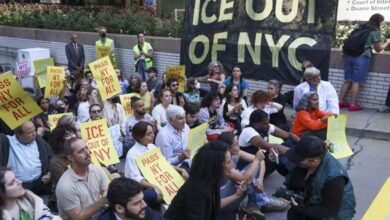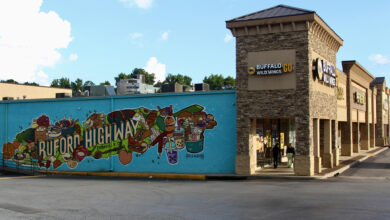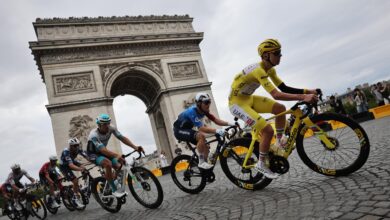Tour de France Slips Away for Latin Riders—But the Alps May Still Offer One Last Opening
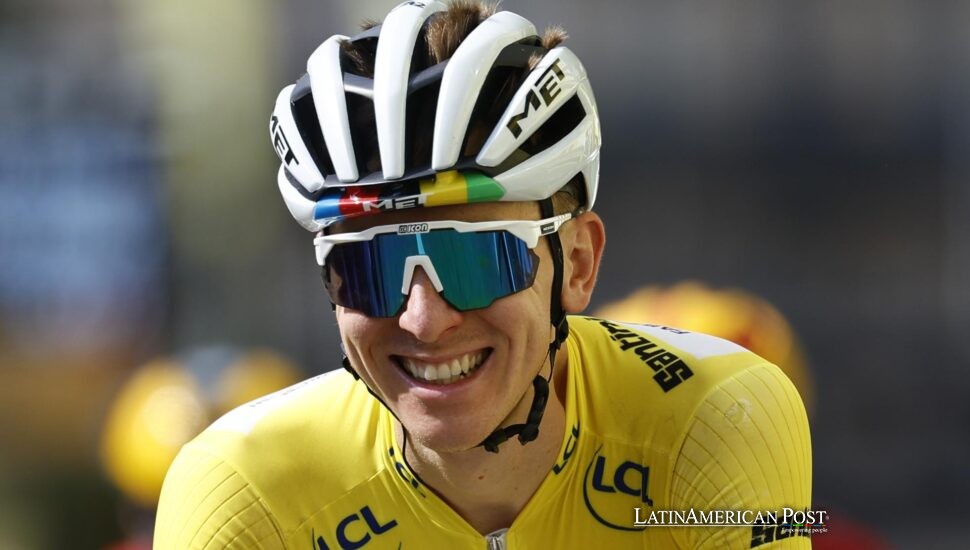
As Tadej Pogacar tightens his grip on the yellow jersey, Latin American cyclists watch the Tour’s final mountain stages with fading hope. The dream of overall glory may be lost—but the fight for pride, podiums, and purpose is far from over.
Pogacar’s Reign Feels Sealed—But There’s Still a Race
Tadej Pogacar has four stage wins, a rainbow jersey, and time gaps that feel like borders. Heading into the final Alpine stretch, he leads by more than seven minutes over his nearest rivals. And after dismantling Jonas Vingegaard on the Superbagnères and Hautacam, it’s hard to see how anyone catches him now.
“Unless something strange happens, the Tour ended in the Pyrenees,” a Spanish sport director told EFE during Monday’s rest day in Montpellier. And strange doesn’t often happen at Pogacar’s altitude.
But behind him, the podium fight is still raw. Colombia’s climbing legacy may be absent from the general classification this year. Still, Spain’s Carlos Rodríguez sits ninth overall, just minutes behind a cluster of riders jostling for the final steps in Paris. Fourth through eighth—Onley, Vauquelin, Roglič, Gall, Johannessen—are separated by barely three minutes.
In that tight pack, every Alpine climb this week is a chance to rise or disappear. And for riders from nations that don’t yet have a man in yellow, that kind of opening is their form of ambition.
Failed Tactics and a Fading Challenge
Visma-Lease a Bike came to France with a script: attack Pogacar in the mountains and replay their 2022 ambush on the Col du Granon. But the playbook misfired.
Pogacar countered every move—not just with watts, but with grit and control. On climbs where Vingegaard tried to drop him, Pogacar surged and won the stage instead. His UAE team kept support riders alongside him on nearly every summit, while Visma’s helpers cracked under pressure.
“He never looked troubled,” a Colombian commentator told EFE. “The rest looked exhausted by the idea of beating him.”
Still, Vingegaard hasn’t surrendered. Nor has Primož Roglič, whose career has been haunted by late-race heartbreak. They see this week—Ventoux, Glandon, La Loze, La Plagne—as their last chance. But it’s not just about winning the Tour anymore. For most, it’s about salvaging a battle worth remembering, even if the war seems decided.
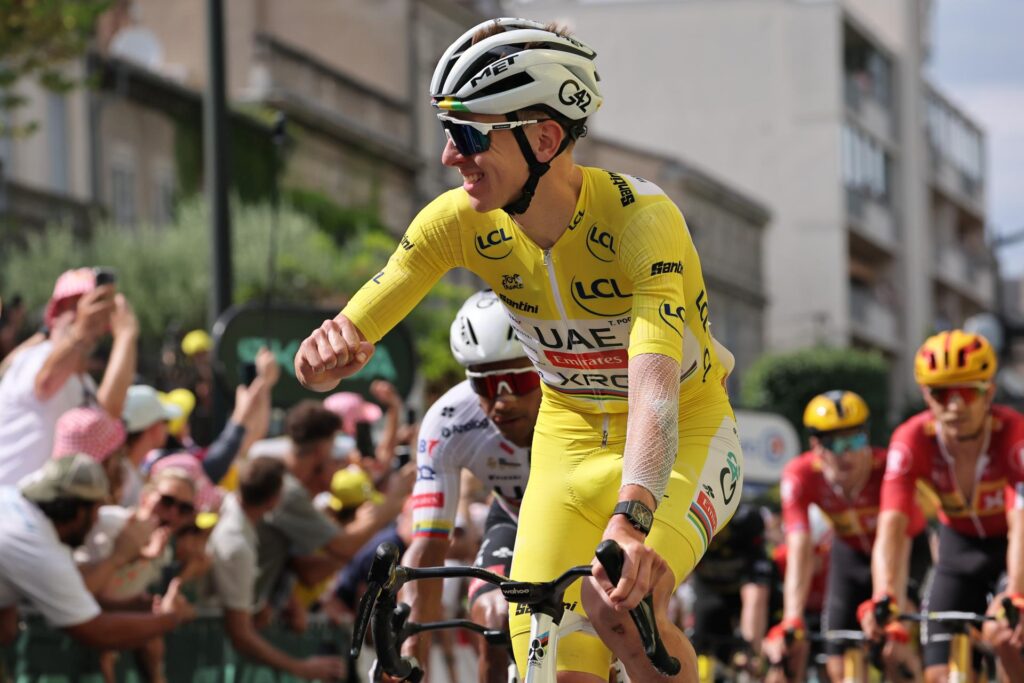
Latin Riders Chase Moments, Not Maillots
For Latin American fans, the final week carries more than hope—it holds memory.
Colombians still recall Egan Bernal’s 2019 comeback, which was launched on Alpine switchbacks as the other legs faded. Ecuadorians remember Richard Carapaz’s 2020 Vuelta, where late bravery turned into overall magic. Those stories echo today—not because someone will steal yellow from Pogacar, but because there are other victories to claim.
“These riders grew up watching heroes like Nairo and Carapaz win mountain stages,” says Venezuelan coach Martín Quezada, who tracks European trends for South American federations. “They know how to suffer. They know how to wait for the moment.”
Quezada points to Carlos Rodríguez as a current example. Though nearly nineteen minutes down on Pogacar, Rodríguez sits within reach of the top five. “Everything can change on Ventoux,” he told EFE after a training spin.
Rodríguez and other hopefuls will spend the next days trying to hang tight on early climbs, then strike when rivals’ legs wobble and the road kicks up again. Stage wins, top ten finishes, even combativity awards—they all matter in a sport where recognition is often measured in effort, not medals.
And in Bogotá, Pasto, San Juan, and Cali, fans will be up before dawn, watching every hairpin, chasing every gasp of potential.
The Alps Decide the Stories Beneath the Headlines
The final week of the Tour kicks off with Mont Ventoux—a barren, brutal ascent where heat and wind can undo even the strongest legs. Then comes the queen stage: Col de la Loze, at 2,304 meters, where oxygen thins and time stretches. On Friday, the final Alpine test: La Plagne, a stage Roglič calls “the last door to anything big.”
For Pogacar, it’s about preservation. For the rest, it’s about seizing what remains.
At the São Paulo press room, at a cafe in Buenos Aires, at a sidewalk viewing party in Caracas, the identical sentiment pulses: Yes, Pogacar has the Tour. But the mountains still offer other stories.
“Latin Americans root for the fighter,” says Mexican broadcaster Laura García, speaking to EFE. “We’ve always loved the underdog who makes the breakaway count.”
And when the Tour drifts onto the Champs-Élysées next week, those side stories—the ones fought bend by bend in the Alps—will linger long after the yellow jersey’s shine fades.
Somewhere, a Latin rider will raise his arms after surviving a breakaway. Somewhere else, a ninth-place finish will inspire a young cyclist on a borrowed bike in the hills of Boyacá or the backroads of Oaxaca.
The maillot jaune may be decided. But the Tour isn’t over. Not for the riders still chasing, and not for the fans who see every struggle as a spark.
Also Read: From Guatemalan Hills to European Podiums: Sergio Chumil’s Climb Toward Cycling’s Grand Tours
Credits: Reporting and interviews by EFE with Carlos Rodríguez, Martín Quezada, Laura García, and team sport directors; performance data from Tour de France organizers and official stage analysis; historical reference from UCI archives and previous Grand Tour statistics.

